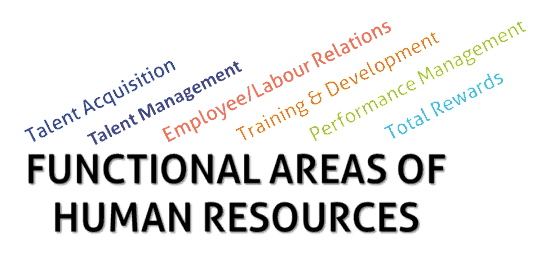Beyond providing onboarding orientation, issuing weekly paycheques and knowing all your employee’s personal info, what exactly does the Human Resources department do? How do they add value to your organization? Listed below is an overview of a few key Human Resources functions and how they bring value to your company.
Performance Management – Formalized and structured performance management plans identify your organization’s top performers and, on the flip side, identify development areas for employees that may not be reaching their full potential. Top performers are given recognition and rewarded monetarily or perhaps offered a promotion. Progressive discipline or development plans can come into play for employees who are performing poorly and if they show no improvement, they can be dismissed to make room for your top performers.
Employee/Labour Relations – Human Resources professionals understand labour law and employment standards, and can provide interpretation of company policy and procedure as well as any applicable collective agreements. They ensure that your organization is operating within legal requirements and that your company is not doing anything that can potentially cause trouble. Having formalized guidelines in place will help your employees navigate organizational expectations as well as assist your Human Resources department in enforcing disciplinary actions, if necessary.
Talent Acquisition & Management – Hiring and retaining top employees is key for high performing organizations. Human Resources is responsible for the creation of strategies and building the foundation around hiring, attracting and retaining organizational top talent. This involves the construction of robust job analysis and job descriptions and working those through to job postings, strong interview processes and hiring the right fit for every role. Human Resources Professionals work on ensuring that all employees brought into your organization have been evaluated on the same criteria and bring the necessary skills that are valued within your organization’s culture.
Training & Development – This facet of Human Resources is concerned with planning orientation for new employees and training existing employees. Providing development opportunities to employees promotes your organization as a desirable place to work while building internal skills and capacity. With proper training, employees are better prepared to help the company reach its strategic goals and they are more productive and motivated. Well trained staff require less supervision and encouraging employees who receive training to share their learning with staff in similar roles reinforces skills and supports the spread of information across the department while avoiding knowledge hoarding or loss of training when employees leave the company.
Total Rewards (Benefits, Payroll, Compensation, etc.) – This area of the HR function includes building a motivating compensation program that is all-encompassing and appealing to all employees. Human Resources Professionals who specialize in this area will help your company ensure that you have a fair and robust compensation structure in place that upholds internal equity but is also competitive within the geographic market and industry your organization operates. This will in turn help in attracting top talent and is also linked very closely with your performance management programs.
People are the most important asset to any organization and the investment a company makes in its Human Resources initiatives can make significant impact. Human Resources is a broad field and each functional area provides an opportunity to add value and contribute to organizational strategy. Although these functions may operate separately, each function is connected, and as a whole they work together to achieve your overall Human Resources plan and the organization’s strategic goals.


